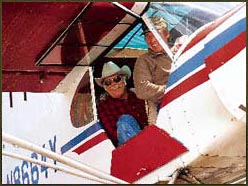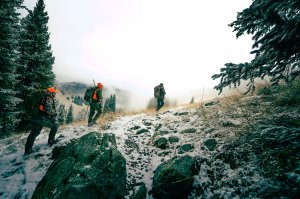Last year I bought a nonresident Colorado elk tag for $473. The year before, the same tag cost me $253. Thirty-five years ago, I paid only $50 for the same tag.
In Wyoming, a nonresident elk tag costs $410. As a resident, I pay only $35. Unless you are a resident of a state that permits elk hunting you can expect to pay around $500 for a tag. And Western hunting fees aren’t the only ones that have dramatically increased. In Iowa, where I’ve hunted whitetails the last six seasons, nonresident deer fees recently jumped from $100 to $220.
Why so much? Inflation is the major problem. When I was in college, gasoline was 25 cents a gallon and a new car cost $2,500. For Father’s Day, I could break into my piggy bank and buy my dad a quality wooden bass plug for $1. That was in the 1950s. Today a plastic replica of that plug costs $4. Back in the ’60s when I landed my first job as a forester, I made the whopping annual salary of $5,000. I fantasized about making the lofty sum of $10,000. Firearms, optics, ammo and gear are also far more expensive today than they were a couple of decades ago. License fees have followed suit.
Where the Money Goes
Hunting license money is used to fully fund many state wildlife agencies. Not only have the costs of running these agencies soared due to inflation, but so has their mission. Because of the environmental movement, agencies must now conform to new federal and state laws as well as work through piles of paperwork relating to threatened and endangered species, wetlands laws and other bureaucratic regulations. In the old days, the only things you needed to manage a wildlife office were a secretary, a typewriter and a telephone. Today, high technology requires you to have numerous employees with more complex skills, plus all sorts of computers, copiers, fax machines, cell phones and equipment that constantly needs to be upgraded to keep up with the times.
The Nonresident Rip-Off
As these costs increase, wildlife commissions look to hunters for more money. Residents typically pay modest increases, but nonresidents get hammered. That’s no surprise, since people can’t vote in states where they are not legal residents. And many will simply dig deeper to pay the high cost of hunting. Nonresidents also aren’t popular with resident hunters, so locals figure it’s acceptable to hit them with expensive fees. Strange as it may seem, in popular big-game hunting states, nonresidents provide the majority of the revenue generated by license sales.
Some states take advantage of the nonresident’s willingness to pay exorbitant rates. Look at sheep tags, for example. In Wyoming, a sheep tag costs a nonresident $1,510. As a resident, I pay $78. The same disproportionate fee structure applies to most states. In New Mexico, a nonresident pays $3,016 for a sheep tag, while a resident pays $99. New Mexico offers only a dozen or so sheep tags annually. Residents and nonresidents have an equal chance of drawing, but in many years no nonresidents draw. The state is blatantly saying, “Only the wealthy need apply.” That’s outrageous. If those nonresident tags were generating a considerable amount of revenue, one might understand the high fee, but the nonresident money is insignificant. Out-of-state hunters are being punished unfairly, and you must truly be well off to afford a sheep tag anywhere in the West.
Although I believe residents should be entitled to somewhat lower fees because they pay taxes in the state in which they reside, nonresident fees are far too high. Boycotting might appear to be the only solution, but for every nonresident who drops out of a “lottery” state like Wyoming that offers quality hunting and a high success ratio, many more will line up for those tags. Each year, many hopeful hunters lose out in the lottery draws and would gladly pay extra for a tag.
Access Is Tough <
Finding a place to hunt can also be expensive. When I first moved West to study forestry and wildlife in 1960, I could knock on practically any rancher’s door in Colorado and get permission to hunt free, as well as a cup of coffee and a piece of homemade pie. Try that today, and you’ll have no luck. Virtually every huntable ranch is leased to outfitters or hunters, and they don’t come cheap. You can expect to pay several thousand dollars for an elk or mule deer hunt in prime country.
Access problems aren’t just confined to big-game lands in the West. Finding a place to hunt practically anywhere in America is more difficult each year. Urban dwellers are buying rural properties, looking for their “little slice of heaven,” and they typically slap up posted signs.
As demand increases, access fees rise. Some landowners lock out hunters because of liability problems or because some have had bad experiences with careless and destructive hunters. And in states like Texas, there is virtually no free hunting for any species. Leasing is a way of life.
No Simple Solution
Where will it end? Is hunting becoming a rich man’s sport? Will our sport go the way it has gone in Europe, where only the wealthy can hunt? I suspect that awful scenario may indeed be our destiny, unless we can stop it now.
Where fee increases are concerned, every now and then we hear about a standard “federal fee” that is applicable in all states. At first blush this may sound reasonable, but the concept scares the heck out of me. Regulating hunting by federal law means that any federal judge can declare it void for whatever reason he or she likes. Hunting could be outlawed in one easy maneuver, and you can bet the antis would jump on it. Bad as it may seem, it is far better for individual states to be in control than the federal government.
Since the driving force behind high license fees is increasing wildlife management costs, one other solution might be to use general treasury revenues in the various states to fund wildlife agencies. But I see that as nearly impossible, since money is scarce, especially in these times. Besides, I believe it’s in our best interests to be able to say that hunters fund the conservation movement where everyone benefits-hunters and non-hunters alike. That makes us the good guys.
So where does that leave us? Unfortunately, where rising nonresident fees are concerned, I don’t see a viable solution, unless, perhaps, states adopt some sort of reciprocal fee structure, similar to what we see among many of the Southern states.
And while rising fees remain a problem, it isn’t all doom and gloom where access is concerned. At least in the West, there are millions of federal acres that offer free public hunting in every state. They’re administered by the U.S. Forest Service and U.S. Bureau of Land Management. Elsewhere in the country, there are many national forests as well as state lands and federal waterfowl refuges. Many states are also implementing “walk-in” programs, in which landowners are compensated for providing access. Another option may be to join a sportsmen’s club. Many of them lease lands for members.
If you want to hunt outside your state, you’ll have to pay steep nonresident fees. But by hunting smart and keeping your eye on your budget, there are ways to save money (see sidebar). The bottom line is, wherever you hunt, be thankful that we have that wonderful privilege. And remember, all good things are worth paying for.
And hunting is a good thing.

